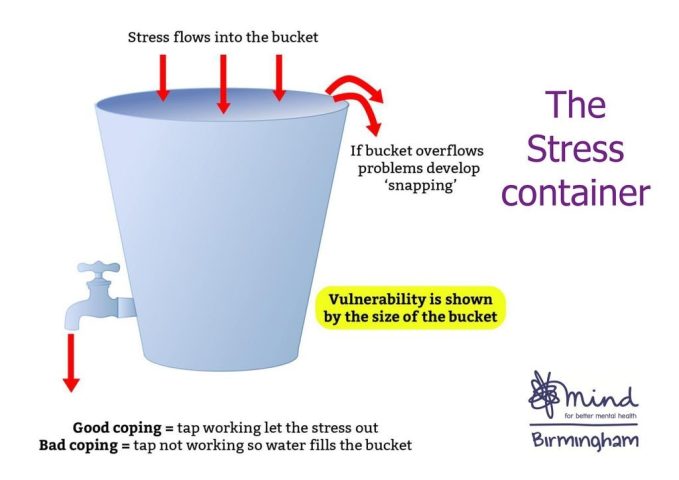February ‘23 Health & Wellbeing Blog! Stress & How To Deal With It!
Stress & How To Deal With It!
I thought I would move away from the fitness theme this month and talk about something that we all encounter and plays a huge part in our lives – stress!
What is Stress?

Stress is a state of physical and mental tension that results from demanding or challenging circumstances. It is a natural response of the body to perceived threats, and can be either positive or negative. Positive stress, also known as eustress, can motivate and energise a person. Negative stress, or distress, can cause feelings of anxiety and lead to physical and mental health problems if left unchecked.
The Effect of Stress on the Brain!

Stress can have both short-term and long-term effects on the brain. In the short-term, stress can affect the brain by releasing hormones such as cortisol and adrenaline which can lead to an increase in heart rate, blood pressure, and anxiety. In the long-term, chronic stress can cause changes in the brain structure, leading to a decreased ability to regulate stress, anxiety, and depression, as well as impairing cognitive functions like memory and decision-making. Chronic stress can also contribute to the development of mental disorders, such as post-traumatic stress disorder. Stress can literally eat holes into the brain!
“Stress is not what happens to us. It is our response to what happens. And response is something that we can choose.” – Maureen Killoran
Ways We Can Deal With Stress!
1. Exercise: Engaging in physical activity such as running, yoga, stretching or any physical activity can help relieve stress and boost endorphins.
2. Breathing Techniques: Practicing deep breathing exercises can help calm the body and reduce stress.
3. Journaling: Writing down your thoughts and feelings can help you process and understand what is causing your stress.
4. Mindfulness: Taking a moment to focus on the present and practice mindfulness can help calm the mind and reduce stress.
5. Relaxation Techniques: Trying relaxation techniques such as meditation, aromatherapy, or massage can help relieve stress and promote relaxation.
6. Spending Time with Loved Ones: Spending time with friends and family can help provide support and take your mind off of stressors.
7. Sleep: Getting adequate sleep can help restore the body and reduce stress levels.
The Stress Bucket

The stress bucket is a concept used to understand and manage stress. It is a metaphor that compares stress to water in a bucket. The water in the bucket represents the stress that an individual experiences.
CIn this simplified version, the idea is that everyone has a certain amount of stress they can handle before it becomes too much. This is represented by the size of the bucket. When someone experiences stress, it is like adding water to the bucket. The more stress they experience, the more water is added to the bucket.
The key to managing stress is to keep the water in the bucket from overflowing. This can be done by finding ways to release or reduce stress, such as exercise, meditation, or talking to a friend. It is important to keep the stress level in the bucket under control so it doesn’t become overwhelming and lead to negative consequences such as burnout or anxiety.
I hope you gained some benefit from this blog and I look forward to engaging with you soon.
Coach Sean
Contact ISL
We are always happy to talk to you about what we do and how we may be able to help.
Contact ISLConnect with ISL
Follow us on social media.






